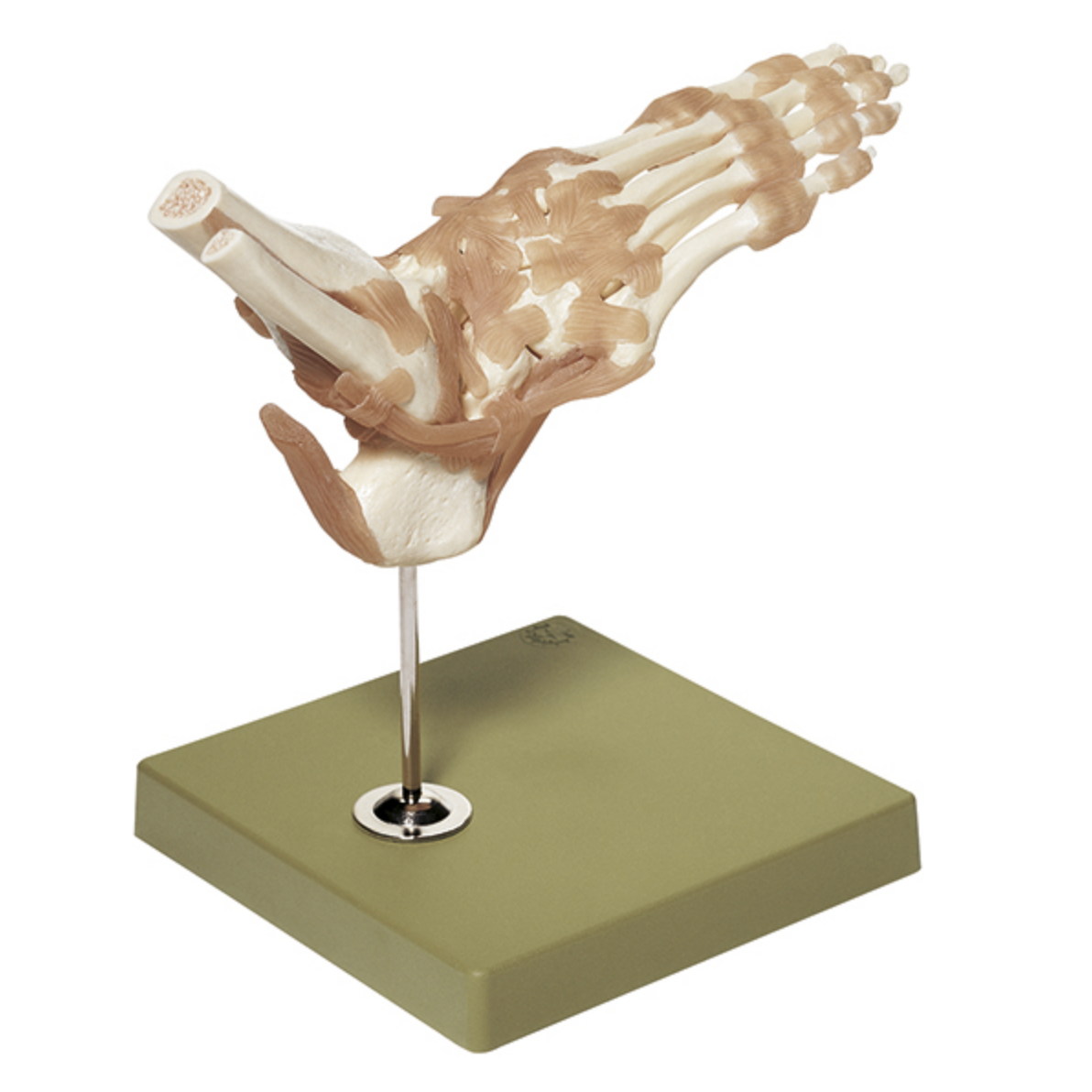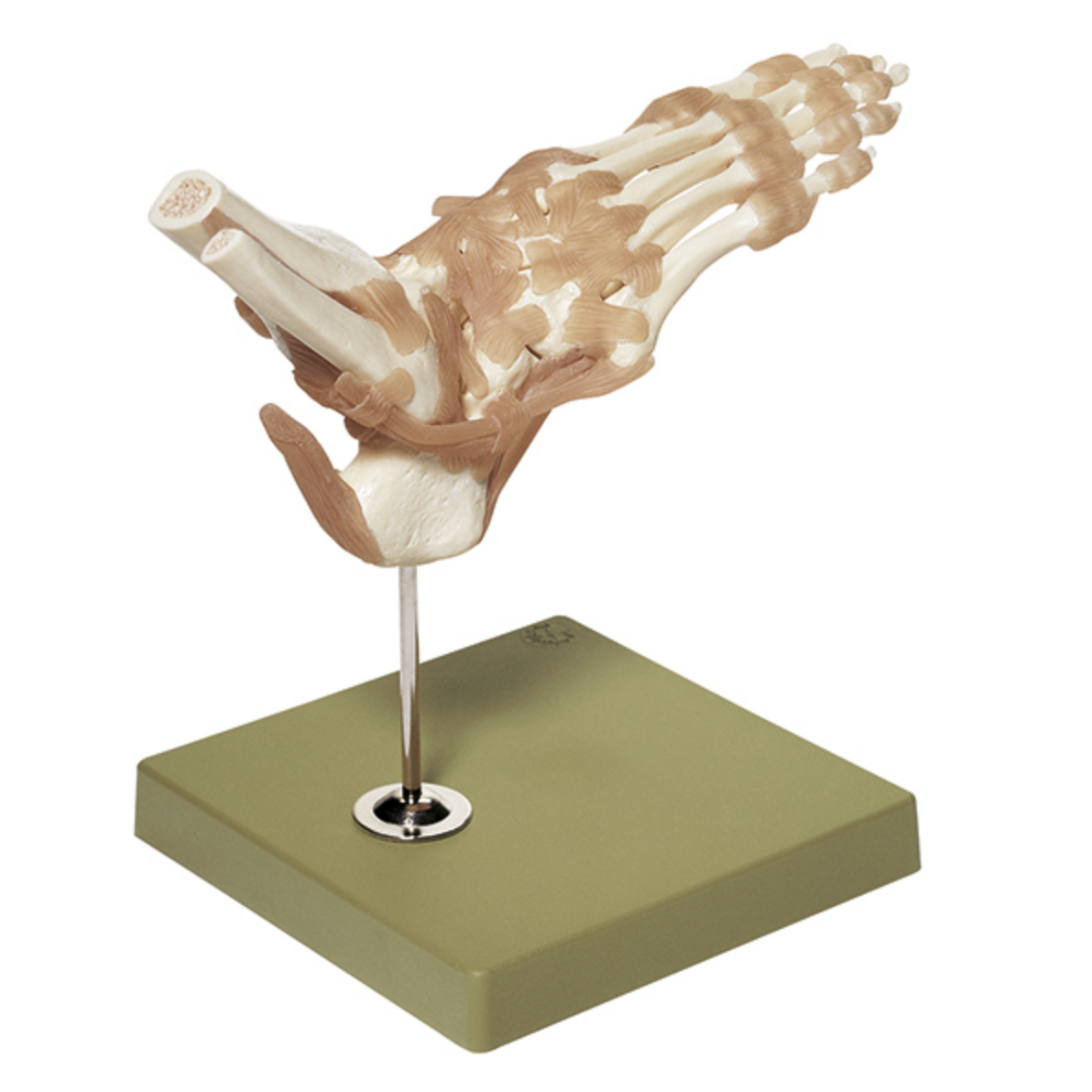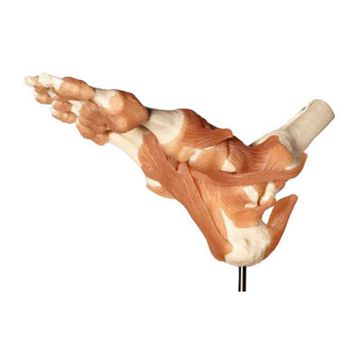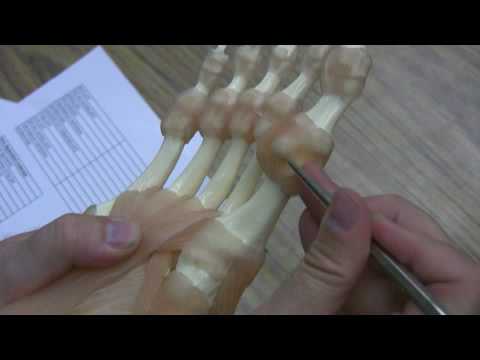SKU:EA1-NS 54
Flexible model of the skeleton of the foot with ligaments and the Achilles tendon as well as a bit of the shin and calf
Flexible model of the skeleton of the foot with ligaments and the Achilles tendon as well as a bit of the shin and calf
2 in stock
Couldn't load pickup availability
This foot model shows the most important ligaments of the foot. The model is produced in SOMSO plastic by the manufacturer SOMSO, which is world-renowned for very high quality. This means quality materials, a sense of accuracy and longevity.
The model is made in the natural size of the foot, and the dimensions are 18 x 28 x 25 cm
(length x width x height). It weighs 0.9 kg and is delivered on a removable stand with a green base.
Anatomical features
Anatomical features
Anatomically speaking, the foot model shows a bit of the shin bone (tibia), a bit of the calf bone (fibula) and the entire foot (pedis) with its 26 bones. The bone structure is extremely realistic. Furthermore, all the most important ligaments are seen as well as some other important anatomical structures such as
membrana interossea cruris, the Achilles tendon and the tendon from m. peroneus longus.
Product flexibility
Product flexibility
In terms of movement, this model is flexible. The bones of the foot are held together via elastics and the ligaments can give a little. Full range of motion is possible in the ankle joint (the talocrural joint between the lower leg bones and the base of the foot) and
the lower ankle joint (the subtalar joint below the talus/roller).
The model can therefore be used both to demonstrate the angular movement of the foot joint called "plantarflexion-dorsiflexion", because this movement is primarily performed in the ankle joint, and "inversion-eversion" because this movement primarily takes place in the subtalar joint.
Clinical features
Clinical features
Clinically speaking, the model is ideal for understanding ligament lesions, Achilles tendon rupture and
luxations (joint slips).
In addition, the model can also be used to understand many types of ankle fractures, metatarsal fractures, toe fractures and foot deformities such as flat feet, clubfoot, metatarsus varus, hallux valgus (big toe bunion), hallux rigidus and hammer toe.
The model can perhaps also be used to understand disorders such as osteoarthritis in the foot (arthrosis) and rheumatoid arthritis (rheumatoid arthritis).
Share a link to this product



A safe deal
For 19 years I have been at the head of eAnatomi and sold anatomical models and posters to 'almost' everyone who has anything to do with anatomy in Denmark and abroad. When you shop at eAnatomi, you shop with me and I personally guarantee a safe deal.
Christian Birksø
Owner and founder of eAnatomi ApS



